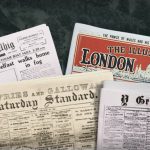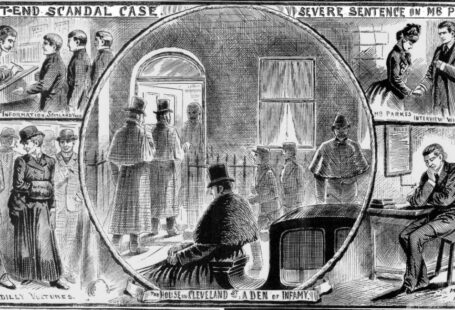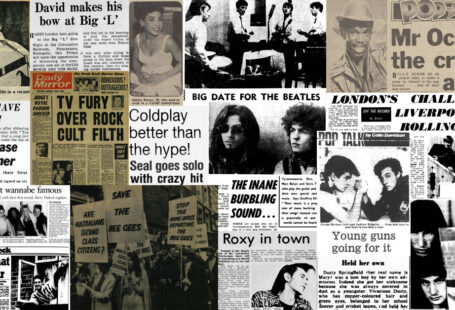With the scars of the Second World War still visible across Great Britain, in 1948 the eyes of the world turned to the country who were set to host the fourteenth Olympiad. Would Britain be able to manage, just three years after the end of the crippling conflict that still saw rationing in place, and bomb sites across its towns and cities?
The 14th Olympiad opens at London | Illustrated Sporting and Dramatic News | 11 August 1948
In this special blog, using our newspapers, we will look at the 1948 London Olympic Games, which opened on the 29th July. Known as the ‘Austerity Olympics,’ we will discover how Britain attempted to overcome both austerity and adversity to host the fourteenth Olympic Games, and whether or not the country was successful in its bid.
Want to learn more? Register now and explore The Archive
Out of Austerity
Well before the sun-drenched opening ceremony of the Olympic Games took place in Wembley in July 1948 there were many who thought that Britain should not be hosting the international sporting event. John Batson, writing for the Weekly Dispatch (London), was one of these naysayers, as he recalled in August 1948:
As far back as last August I ‘panned’ this Olympiad being held in London. I hammered that the time was wrong; our own athletes wouldn’t stand much chance because of the way we had to live; and that these international sports events, anyway, were just international warfare without the lethal weapons.
The conflict had of course left its grubby mark: was it appropriate for countries to compete again, given that they had just been at war? And should Britain participate, given the way its people ‘had to live,’ oppressed by austerity and the impact of the war?
But despite such criticism, the Olympic Games were set to go ahead, by hook or by crook, with austerity as their watchword.
In February 1948 The Sphere reported on the work of Mr. G. W. Barnes, of Orpington, Kent. Mr. Barnes had been charged with striking the medals for the Games. But that year, ‘the medals [were] to be of oxydised silver instead of gold,’ causing the newspaper to label them ‘austerity medals.’
Meanwhile, in the same month, preparations were being made to accommodate the visiting athletes and their trainers. The Sphere relates how 1,700 visitors were set to be homed in Richmond Park, at a former Army convalescent centre:
Many of them will find a temporary home in the Olympic village set on the highest ground in Richmond Deer Park, and together with team managers, trainers and domestic staff the population will number 1,700. The camp was formerly an Army convalescent centre, and it is being specially adapted for its temporary function.
The Olympic Village in Richmond Park | The Sphere | 28 February 1948
Economies were being made wherever they could be found, with the former convalescence centre being transformed into an Olympic Village. However ‘a considerable amount of reconstruction [was] necessary to fit the former convalescent camp for its new task,’ with showers being installed alongside extra pipelines, and kitchens being fitted in the accommodation.
Laying drains in the Richmond Park Olympic Village | The Sphere | 28 February 1948
And no new stadiums were to be built for this Olympics, Britain making use of what it had, with Wembley Stadium as the Games’ beating heart. The Sphere in July 1948 describes how:
Wembley Stadium, where the main track events will be decided, and where the official opening took place: the platform at the far end of the Stadium is the position for the Olympic torch. The finals of the football and field-hockey games will be held here, together with fencing, gymnastics and the Prix des Nations. The Marathon both begins and ends here.
Meanwhile, the track cycling events were set to be held at the Herne Hill Arena in South London, and wrestling and weightlifting would take place at the Empress Hall at the Earls Court Exhibition Centre.
Herne Hill Arena, South London | The Sphere | 31 July 1948
So by the end of July, with months of preparation, the eyes of the world were upon London. Would she sink, or would she swim?
The Opening Ceremony
London’s Olympiad, the second time it had hosted the Summer Games, began on the 17 July 1948 in Greece, were a ‘ceremony [was] held amid the ruins of the temples of Zeus and Hera.’ The Sphere tells us how the Olympic Flame was lit by the rays of the Greek sun, with the flame then passed on to a Greek athlete, onwards to Port Katakolon.
Lighting the Olympic Flame | The Sphere | 24 July 1948
From there, the Olympic Flame was ‘taken aboard a Greek destroyer which then sailed for Corfu, where the torch was transferred to the British frigate Whitesand Bay.’ Making its journey across the seas, the torch was due to arrive at Wembley on 29 July 1948, and it is to Wembley on 29 July 1948 that we now go.
The Illustrated London News, reporting on the opening ceremony over a week later in August 1948, sets the scene:
The Olympic Games opened in blazing summer sunshine at the Wembley Stadium on July 29. Before a royal party, which included the King, Queen, Princess Margaret, Queen Mary, the Duke and Duchess of Gloucester and the Duchess of Kent, and a dense crowd of some 80,000 spectators, the 6,000 competitors from fifty-eight nations paraded round the Stadium and took up their places in the centre.
The opening ceremony at Wembley Stadium | Illustrated London News | 7 August 1948
Peter Wilson for the Sunday Mirror picks up the narrative, from Lord Burghley’s ‘memorable words’ – ‘Your Majesty, the hour has struck’ – to King George VI’s ‘sixteen-word speech through golden microphones’ – ‘I proclaim the Olympic Games of London celebrating the Fourteenth Olympiad of the modern era open.’
King George VI takes the salute of the passing athletes | Illustrated London News | 7 August 1948
7,000 pigeons, ‘sent from six countries to compete for a prize,’ were then released to mark the occasion, wheeling ‘over the Stadium like handfuls of dust thrown against the the blue bowl of the sky.’ After this, in the ‘Final Ceremony,’ celebrated hurdler Wing Commander D.O. Finlay took the ‘Olympic oath on behalf of all the contestants…surrounded by the flags of the contingents.’
7,000 pigeons are released over Wembley | Illustrated London News | 7 August 1948
Meanwhile, the Illustrated London News relates how:
…on the great scoreboard were blazoned the words of the late Baron de Coubertin, the originator of the modern series:‘The important thing in the Olympic Games is not winning, but taking part. The essential thing in life is not conquering but fighting well.’
‘Everything is Noise and Colour’
The Games had got off to an impressive start, and many were moved by the opening ceremony. For many, it was like a light had been switched on, giving colour to a bleak world dulled by austerity and hardship.
Peter Wilson for the Sunday Mirror writes vividly of this experience:
After years of austerity it’s like a mighty audience brought up on gloomy black and white films and suddenly seeing their first ‘talkie’ – and finding it’s in colour, too. Imagine an emerald cut into an oblong and surrounded by a circlet of rust. That’s the Wembley turf, enclosed by the track. Imagine a giant’s sugar bowl full of coloured hundreds-and-thousands. That’s what the stands look like when they are full.
‘The March Past of Athletes’ | The Sphere | 7 August 1948
‘Everything is noise and colour’ now, he writes. The opening ceremony was a veritable treat for the senses, senses which had been so inured to the sounds of warfare, the air raid sirens and the clattering of bombs and debris.
Meanwhile, John Batson for the Weekly Dispatch (London) describes the ‘lump…in [his] throat as big as a billiard ball.’ He tries to water down his sense of emotion by referencing ‘certain athletic females,’ but really he is moved by the display before him:
It’s just the old Union Jack as it appears leading the British contingent, which makes me swallow hard and want to yell: ‘Go on, my bonny lads and lassies! We may not have much hope this time, but by cripes we’ll make ‘em fight for their titles!’
And the opening ceremony was starkly different to the previous one, which was hosted twelve years before in Berlin. Hannen Swaffer, for The People, quotes America’s ‘ace sporting broadcaster’ Ted Husing, as he reflected on this contrast:
I literally wept with emotion while I watched the overwhelming impressiveness of the Wembley scene….It was so devoid of military display, so full of welcome to all the contestants, so friendly. It was a Pageant of Peace. In 1936, I saw a display of arrogance.
The 1936 Berlin Olympics | Illustrated London News | 8 August 1936
Indeed, following the American team’s refusal to give the Nazi salute to Adolf Hitler in 1936, which caused the organisers to suddenly play Deutschland Uber Alles, Husing was escorted off German soil, having called the scenario ‘a disgrace to the Olympics.’
Meanwhile, The Sphere on 7 August 1948 reflects how:
The whole opening ceremony was deeply impressive, but had none of the ostentation and violent nationalistic fervour which marked the start of the Berlin Games which were held just before the Second World War.
The Olympiastadt, Berlin | The Bystander | 12 August 1936
Peter Wilson, for the Sunday Mirror, concurred:
It’s so very different, this whole atmosphere, from the occasion of organised militarism which characterised the last Games I saw – twelve years ago in the great white stadium in Berlin.
The 1948 London Olympics, therefore, represented a kind of healing on both a national and international level. National pride was restored, and an international statement had been made, that there was no space for the rampant militarism of the preceding years.
Internationalism In Action
We traced the lighting of the Olympic Torch and its initial journey from Greece, but what happened when it finally arrived at Wembley? Accompanied by the sound of distant cannons, Surbiton medical student and runner John Mark arrived with it at the stadium.
John Mark carries the Olympic Torch into Wembley Stadium | The Sphere | 7 August 1948
Ostensibly ‘tall and handsome,’ Peter Wilson for the Sunday Mirror describes what happened when John Mark lit the Olympic Flame:
With a sudden gesture he plunges the Torch downwards to kindle the Olympic Flame. It leaps and gushes up, ruddy as a dragon’s tongue. The massed athletes – Danes in crimson, Indians in blue and white, Iraqis in bottle green, Koreans in grey…Pakistanis in leaf green, and representatives of all the fifty-eight competing nations – have not been able to resist the compulsion of cheering on The Runner.
One minute they are formed up in blocks, like coloured bricks. The next they have run and scattered to the track’s edge, like paint spreading over an artist’s green palette. It’s a spontaneous gesture.
In a break from formalities, athletes from different nations gathered together in this moment of wonder. How different from twelve years before, and what a refreshing and moving sight that must have been.
John Mark runs past the assembled athletes | Illustrated London News | 7 August 1948
Indeed, this is partly what causes Wilson to reflect how the Games was ‘the best example of internationalism really working that I’ve ever come across in twenty or more countries.’ Moreover, he relates how:
The very first day I helped to carry the bag of a Danish girl who was taking an ‘Olympic Holiday’ here; I found myself seated among friends to whom I had said goodbye in America four weeks ago; a Mexican ‘fan’ knocked my hat over my eyes when his team appeared; and in front of me a French lady asked if her plumed hat was obscuring my view.
The world was coming together again, in peace time. And it was not just the crowds who were represented many countries of the globe; the participants did too. The Sphere looks back to the first time London hosted the Olympic Games in 1908, reflecting how:
In 1908 only 1,000 athletes took part in the Olympiad, and of these more than a quarter came from the United Kingdom. Now, exactly forty years later, fifty-eight teams took part… 6,000 competitors, drawn from all over the world, and some of them members of independent States which were undreamed of ten years ago.
Britain Heals
There was yet another moving display at the opening ceremony, as described by John Batson for the Weekly Dispatch (London). He writes how:
And I’m going to remember, too, how, when the parade was lined up on the centre of the arena, and the Union Jack with its escort went towards the rostrum for the taking of the Olympic Oath, the Australian Flag alone dipped in salute as our standard passed. I do not record this in any criticism of the other flag bearers, but – thanks, Aussies, all the same. The gesture meant much to thousands of British ex-warriors who feel that our country has been ‘taking it on the chin’ rather more than she should in recent times.
Flags are dipped as the Olympic Oath is read | Illustrated London News | 7 August 1948
This little signal from Australia served as a reminder of how much Britain had been through to get to where it was, for she ‘had done her best in these austere times.’ Batson concludes that Britain had put on a ‘pretty good show.’
And the British and international public lapped up this ‘pretty good show.’
The Halifax Evening Courier on 2 August 1948 reports on enormous popularity of the Games:
The Bank Holiday rush of Olympic Games enthusiasts was so great to-day, that by mid-morning a number of London Underground stations had sold out of return tickets to Wembley. There were long queues for standing room admission at the Stadium, and another capacity crowd of 82,000 were assured.
Weekly Dispatch (London) | 1 August 1948
The way the public responded to the Olympics showed there was an appetite, a need, for such a coming together. And tourists visiting Britain showed the same eagerness, desperate to source souvenirs. The Belfast News-Letter on 2 August 1948 writes how:
Olympiad visitors are scouring the shops for souvenirs to take home. They want badges, printed handkerchiefs, special ties and scarves, pieces of china suitably inscribed, small silver gifts – few, if any, of which are available. So they are seeking out small typically English trifles in the antique shops, giving a fillip to a trade which in the last few weeks has begun to feel the beginnings of a threatened slump.
Special Olympic stamps | Aberdeen Press and Journal | 29 July 1948
And although the British athletes did not top the table (they ranked 12th overall in the medals table, with 3 golds in rowing and sailing), integral to this Games was the idea of taking part, that taking part represented both surviving war and healing from its effects, for Britain and for other countries.
For as The Sketch reflects in September 1948:
The hallmark of this XIVth Olympiad has been an almost complete absence of bad feeling.
























